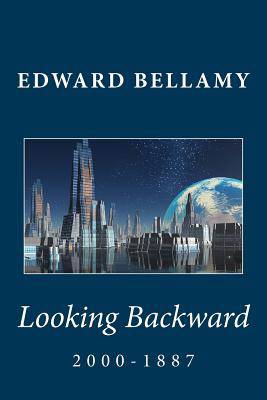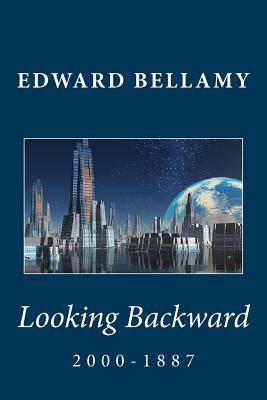
- Retrait gratuit dans votre magasin Club
- 7.000.000 titres dans notre catalogue
- Payer en toute sécurité
- Toujours un magasin près de chez vous
- Retrait gratuit dans votre magasin Club
- 7.000.0000 titres dans notre catalogue
- Payer en toute sécurité
- Toujours un magasin près de chez vous
Description
Edward Bellamy's 'Looking Backward: 2000-1887' remains the most successful and influential Utopian novel written by an American writer. At the end of the 19th century, Bellamy creates a picture of a wonderful future society. Bellamy's protagonist is Julian West, a young aristocratic Bostonian who falls into a deep sleep while under a hypnotic trance in 1887 and ends up waking up in the year 2000 (hence the novel's sub-title). Finding himself a century in the future in the home of Doctor Leete, West is introduced to an amazing society, which is consistently contrasted with the time from which he has come. As much as this is a prediction of a future utopia, it is also a scathing attack on the ills of American life heading into the previous turn of the century. Bellamy's sympathies are clearly with the progressives of that period. "Looking Backward" does not have a narrative structure per se. Instead West is shown the wonders of Boston in the year 2000, with his hosts explaining the rationale behind the grand civic improvements. For example, he discovers that every body is happy and no one is either rich or poor, all because equality has been achieved. Industry has been nationalized, which has increased efficiency because it has eliminated wasteful competition. This is a world with no need of money, but every citizen has a sort of credit card that allows them to make individual purchases, although everyone has the same monthly allowance. In Bellamy's world is so ideal that it does not have any police, a military, any lawyers, or, best of all, any salesmen. Education is so valued that it continues until students reach the age of 21, at which point all citizens enter the work force, where they will stay until the age of 45. Men and women are compensated equally, but there are some distinctions between job on the basis of gender, and pregnancy and motherhood are taken into account. Bellamy was living during the start of the Industrial Revolution, and like Francis Bacon and Tomasso Campanella who wrote during the height of the Age of Reason, he sees science and human ingenuity as being what will solve all of humanity's problems. He does not get into too many details regarding the comforts of modern living in the future, but there are several telling predictions (e.g., something very much like radio). However, it is clear that Bellamy is writing primarily to talk about economics and sociology, especially because he always compares his idealized future with the problems of his own time.
Spécifications
Parties prenantes
- Auteur(s) :
- Editeur:
Contenu
- Nombre de pages :
- 176
- Langue:
- Anglais
Caractéristiques
- EAN:
- 9781481275354
- Date de parution :
- 21-12-12
- Format:
- Livre broché
- Format numérique:
- Trade paperback (VS)
- Dimensions :
- 152 mm x 229 mm
- Poids :
- 244 g

Les avis
Nous publions uniquement les avis qui respectent les conditions requises. Consultez nos conditions pour les avis.






